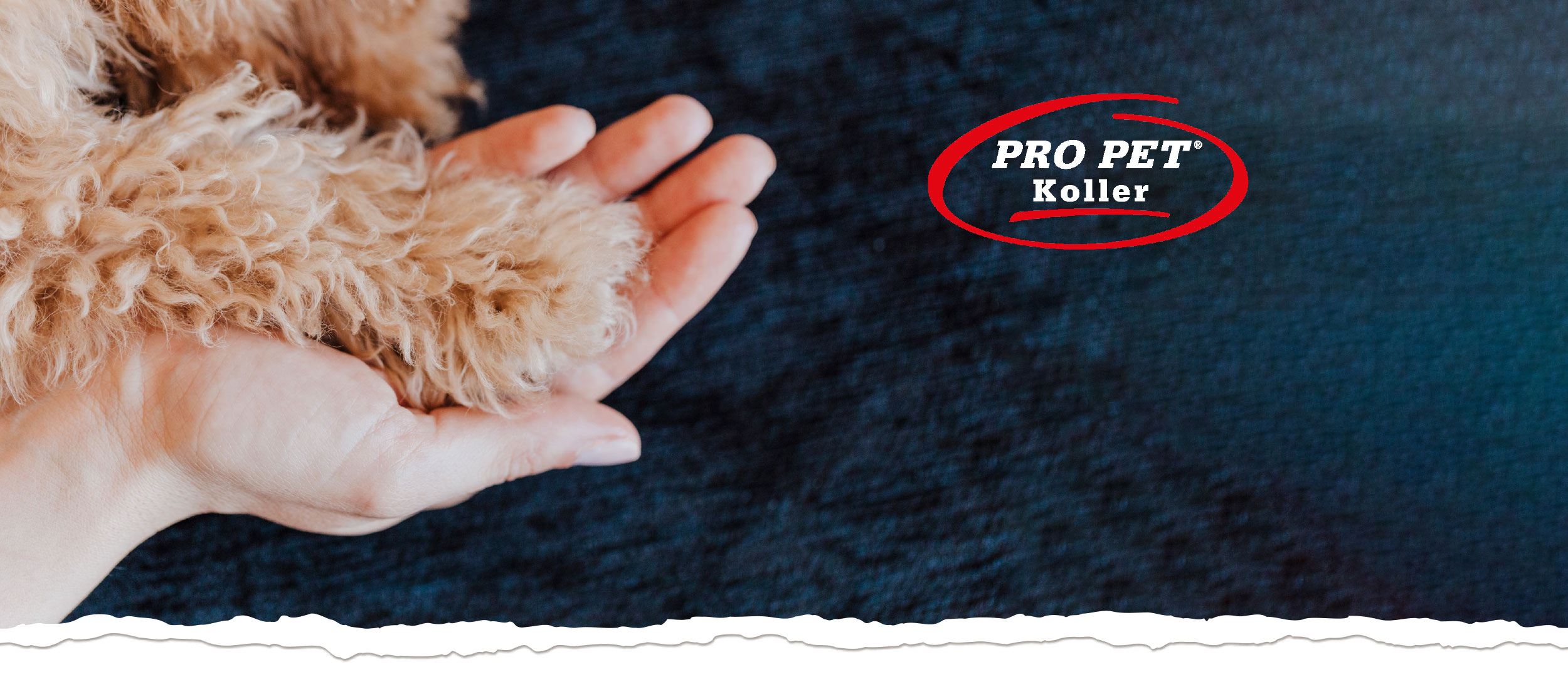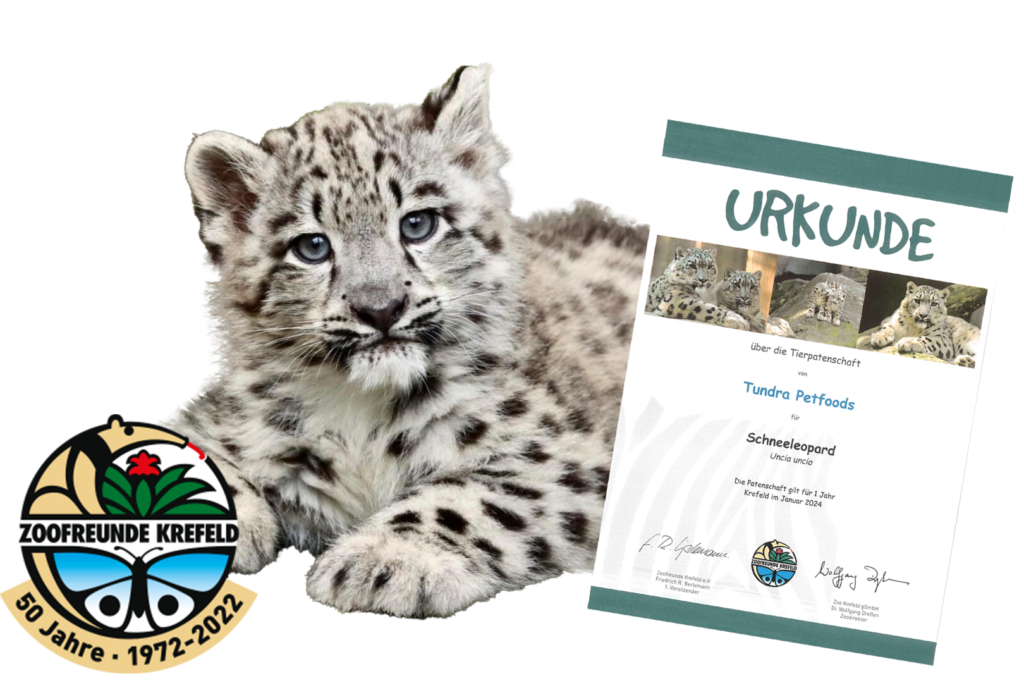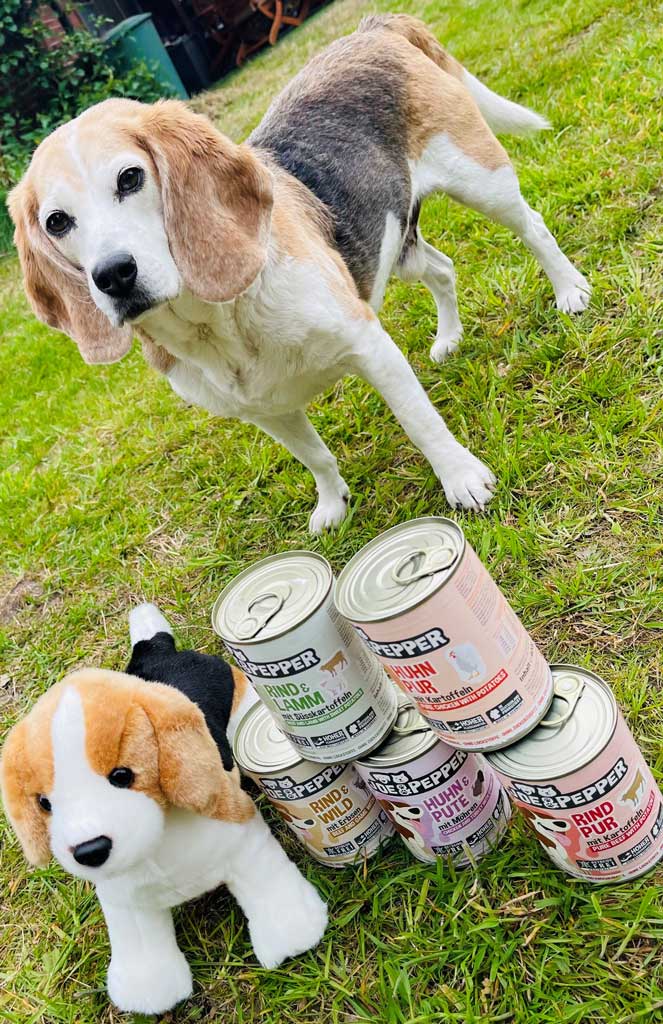Premium pet food out of conviction - out of love for animals!

We are proud to be not just a company, but also a community of animal lovers and pet owners. Each of our sponsored animals is an important part of our company culture, and we would like to introduce them to you.
Our sponsored animals are animals that we support and protect. They are our ambassadors for animal welfare and symbolize our commitment to promoting the well-being of all animals.
Species-appropriate husbandry : We are committed to ensuring that our sponsored animals live in a species-appropriate manner. This means that they receive sufficient space, species-appropriate activities, and a healthy diet.
Rescue and rehabilitation : Many of our sponsored animals have a turbulent past. They have been rescued, rehabilitated, and given a second chance. Their stories inspire us and show how important it is to stand up for animals.
Education and awareness-raising : Our sponsored animals are also educational ambassadors. We use their stories to educate and raise awareness among visitors about animal welfare issues.

Playing, eating, and sleeping: That's the daily routine for Nubra and Dawa, the two youngest snow leopards at Krefeld Zoo. TUNDRA supports the rearing of the big cat cubs through a sponsorship.
On Monday, July 11, 2022, snow leopard mother Dari gave birth to two cubs behind the scenes at the zoo. Since then, the two females have been romping around the zoo's spacious enclosure, growing and successfully practicing climbing, jumping, and catching – always under the watchful eye of their mother, Dari. Despite their fluffy appearance and blue eyes, the snow leopards are easily distinguishable: Nubra's fur is darker, while Dawa has a lighter coat pattern.

We are delighted to be able to support these two now adolescent big cats with a sponsorship and would also like to draw attention to the threat facing snow leopards in the wild.
Krefeld Zoo boasts a successful breeding history: For snow leopard father Patan and mother Dari, this is already the fourth litter born in Krefeld. The pair continues a long line of successful breeding programs for these highly endangered mountain animals, which began in 1966 with the first litter. This was a sensation, as until then only Helsinki Zoo had achieved breeding success in Europe. With Nubra and Dawa, the snow leopard breeding program enters its seventh generation.
Man is not the measure of all things.
It is life amidst life that also wants to live.

The chances of finding homes for Beagles bred in laboratories vary: While young, healthy dogs can find a new home quite quickly, it is often more difficult for older dogs who may already have pre-existing conditions.
For such cases, there are foster homes that care for exactly these kinds of dogs. The Laboratory Beagle Rescue continues to cover the costs of food and veterinary care and relies on sponsors who donate a monthly amount for a beagle.
We, too, have decided to sponsor a former laboratory beagle: Our sponsored dog, Greg, lives in a wonderful foster home and receives support from us, including food.

26.04.2014
Gregie, Schneggel
Typical Beagle
Playing in the garden, going for a walk with his buddy Teddy
He spent the first 10 months of his life in an animal testing laboratory
cheerful & fun
his large garden, walks, sunshine, his buddies Goldie & Milow
pushy dogs, rain
he has bladder stones
In Germany and Europe, numerous laws mandate and regulate animal testing for various purposes. Without them, many medications, medical products, aids, and surgical and therapeutic procedures would unfortunately not be available. Of course, experiments on animals, whether rats, dogs, or monkeys, are still unacceptable. The association Laborbeaglehilfe e. V. (Laboratory Beagle Aid) is therefore committed to providing laboratory beagles with a new, better life after their time at the research institute.
Since 2007, the non-profit organization has been dedicated to finding homes for former laboratory beagles. They collaborate with laboratories and institutes to take in beagles when they are no longer needed. After their release and a thorough medical check, the dogs are ready to be adopted and begin a new, happy life.
Furthermore, the association helps puppies from breeding facilities both domestically and internationally, finding them new homes after they have received appropriate medical care. A total of twelve active members volunteer their time to care for the animals and the association's work, finding foster homes and organizing regular meetings for laboratory beagle owners to exchange information and experiences.